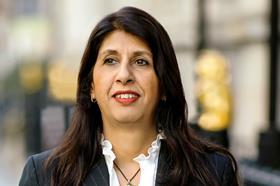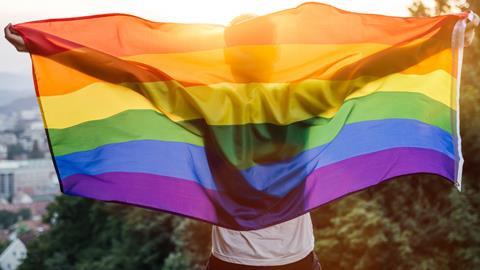The UK’s legislation around LGBTQ+ rights has come a long way since 1885, when the Criminal Law Amendment Act made all homosexual acts of ‘gross indecency’ illegal.

After World War Two, there was a rise in the prosecutions and arrests of homosexual men.
One of the most notable casualties of this law was codebreaker Alan Turing, who was prosecuted in 1952 for homosexual acts.
This law was changed in 1967. However, police harassment of the gay community happened after 1967.
The Stonewall riots signalled a recognition that LGBTQ+ rights were on a par with other civil rights movements for women and Black Americans, for example.
This led to a movement for change across the world, including the UK, that was driven by LGBTQ+ people themselves.
In 1972, the first Pride festival took place in London. Over 2,000 people took part and the event was viewed by many as a political protest.
In 1981, the first cases of HIV/AIDs were identified. The gay community faced increased hostility during this time, with the media sensationalising the disease.
The LGBTQ+ community successfully fought to bring awareness of the virus. Throughout the 1980s, ACT UP London staged ‘die-ins’ – where protestors lay down on a road – to represent those who lost their lives to the virus.
In 1988, prime minister Margaret Thatcher introduced a clause – Section 28 – to the Local Government Act. This banned local schools and authorities from ‘promoting the teaching of the acceptability of homosexuality as a pretended family relationship.’
This clause created a great deal of damage to the LGBTQ+ community. Pupils were deprived of seeing people like them in plays, leaflets or books. This led to an uprising by the LGBTQ+ community who protested against the law and how they were treated by society.
In 2003, the law was repealed.
Where are we now and where are we going
In the years since, we have come some way to improving LGBTQ+ rights in the UK. The World Health Organisation declassified homosexuality and transgender health issues as mental illnesses, the law changed to allow gay and bisexual people in the armed forces and to allow gay people to adopt children.
In 2004, the Civil Partnership Act allowed same-sex couples to form civil partnerships and in 2013, the Marriage (Same Sex Couples) Act introduced civil marriage for same-sex couples in England and Wales.
Of course, the debate about LGBTQ+ rights continues to this day.
I mention these events as they play an important role in LGBTQ+ History Month, which begins today.
Founded in the US in 1994 by teacher Rodney Wilson, the month is now observed in Australia, Brazil, Canada, Cuba, Greenland, Hungary and the UK.
Rodney Wilson said: 'LGBT history gave me self-confidence as a gay person and strengthened my resolve to live, as best I could, an honest, open and integrated life.'
In the UK, LGBTQ+ History Month was founded in 2004 by charity Schools OUT, which is working towards equality, safety and visibility in education for all lesbian, gay, bisexual and transgender people.
Like all solicitors, LGBTQ+ solicitors play an important role in upholding the rule of law, helping shape the justice system and fighting for their clients’ rights.
However, the experience for LGBTQ+ solicitors must be improved.
Our Pride in the Law report provides a comprehensive overview of experiences of LGBTQ+ lawyers and LGBTQ+ equality in the profession.
97% of LGBTQ+ respondents felt able to be themselves in their workplace – either sometimes (44%) or always (53%).
42% of respondents said coming out to clients was a pressing issue and 34% experienced microaggressions.
Over a third (37%) of LGBT+ respondents said they had experienced homophobia, biphobia or transphobia in their workplace. A similar proportion of lesbian/gay women (37%), gay men (36%) and bisexual (32%) lawyers said they had experienced these negative behaviours.
A lower proportion of LGBT+ respondents working in national or local government said they had experienced homophobia, biphobia or transphobia, 24%, compared to 35% of those working in private practice and 37% working in non-government in-house.
Within private practice, a higher proportion of those working in small firms (1-4 partners), said they had experienced negative behaviours but were less likely to report it.
It is important to gain more insight into our profession and get a greater understanding of the experiences of LGBTQ+ lawyers.
LGBTQ+ History Month plays an important role in improving the situation for LGBTQ+ colleagues in raising awareness of the situation for LGBTQ+ people.
Lubna Shuja is president of the Law Society of England and Wales































